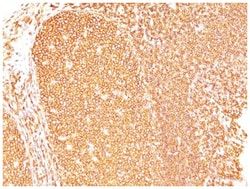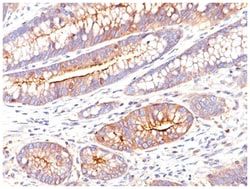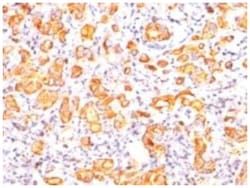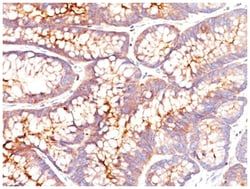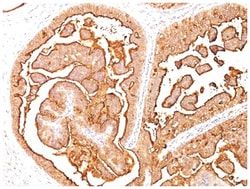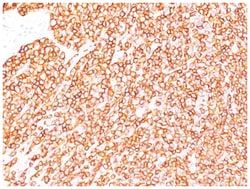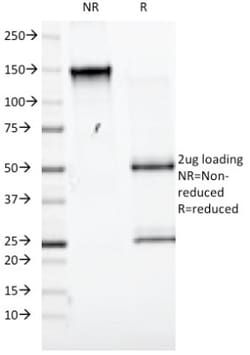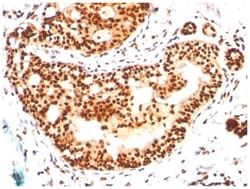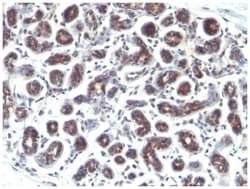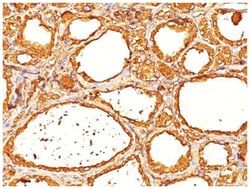CD98 Antibody (UM7F8), Novus Biologicals™
Mouse Monoclonal Antibody
Manufacturer: Fischer Scientific
The price for this product is unavailable. Please request a quote
Antigen
CD98
Dilution
Western Blot 0.5-1.0ug/ml, Flow Cytometry 0.5-1ug/million cells, Immunocytochemistry/Immunofluorescence 0.5-1.0ug/ml, Immunoprecipitation 1-2ug/500ug protein, Immunohistochemistry-Frozen 0.5-1ug/ml, SDS-Page
Classification
Monoclonal
Form
Purified
Regulatory Status
RUO
Target Species
Human
Gene Accession No.
P08195
Gene ID (Entrez)
6520
Immunogen
Molt 13 T cell line
Primary or Secondary
Primary
Content And Storage
Store at 4C.
Clone
UM7F8
Applications
Western Blot, Flow Cytometry, Immunocytochemistry, Immunofluorescence, Immunoprecipitation, Immunohistochemistry (Frozen)
Conjugate
Unconjugated
Host Species
Mouse
Research Discipline
Cell Biology, Cellular Markers, Immunology, Lipid and Metabolism, Plasma Membrane Markers, Signal Transduction
Formulation
PBS with 0.05% BSA. with 0.05% Sodium Azide
Gene Alias
4F2, 4F2hc, 4T2HC, antigen identified by monoclonal antibodies 4F2, TRA1.10, TROP4, and T43,4F2HC, CD98, CD98 antigen, CD98 heavy chain, CD98HC, heavy chain, Lymphocyte activation antigen 4F2 large subunit, MDU1antigen defined by monoclonal 4F2, heavy chain, monoclonal 44D7, NACAE4F2 cell-surface antigen heavy chain, solute carrier family 3 (activators of dibasic and neutral amino acidtransport), member 2,4F2 heavy chain antigen
Gene Symbols
SLC3A2
Isotype
IgG1
Purification Method
Protein G purified
Test Specificity
CD98 exits as a heterodimer containing a disulphide-linked glycosylated heavy chain and a non-glycosylated light chain. It is a member of the solute carrier family and encodes a cell surface, transmembrane protein. The protein exists as the heavy chain of a heterodimer, covalently bound through disulfide bonds to one of several possible light chains. The encoded transporter plays a role in regulation of intracellular calcium levels and transports L-type amino acids. Alternatively spliced transcript variants, encoding different isoforms, have been characterized.
Description
- CD98 Monoclonal specifically detects CD98 in Human samples
- It is validated for Flow Cytometry, Immunocytochemistry/Immunofluorescence.
